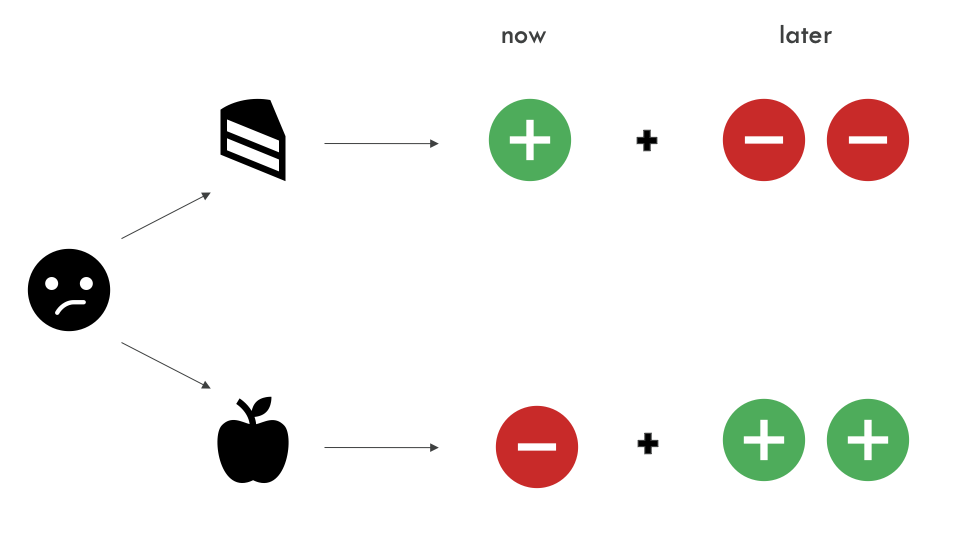Learned Impatience
Do people discount delayed reward information relative to immediate reward information, even if the timing of the information has no impact on the delivery of the reward?
Collaborators: David Poensgen, Ian Krajbich
Programming: CSS, HTML, Javascript, MATLAB, R, stan
Skills: Bayesian Statistics, Experiment, Linear and Logistic Mixed Effects Regressions, Model Comparison, Model Simulation and Model Fitting, Reinforcement Learning Models, Sequential Sampling Models, Webcam Eye-tracking
🔭 About
Do people discount delayed reward information relative to immediate reward information, even if the timing of the information has no impact on the delivery of the reward?

Imagine you’re in a situation where you have to decide which action to take. For instance eat cake ( 🍰 ) or an apple ( 🍎 ).
Usually actions have multiple consequences - some immediate, others delayed.
- If you eat the apple ( 🍎 ) now - it might not be as pleasurable as the cake, but you save some calories from your diet.
- If you eat the cake ( 🍰 ) - you get the small reward now, but you might regret it later.
Next time when you’re in the same situation, you’ll consider what to do based on your previous experience. Will the ordering of the immediate and delayed rewards affect your decision?
Even though in this case, you would be better off choosing the healthy option ( 🍎 ) now since you get a bigger total reward, you might instead choose the unhealthy option ( 🍰 ) because the immediate reward is higher. Then you would be overweighting immediate consequences.
Examples of suboptimal behaviors like this include: overeating, overspending, not working hard enough, exercising too little, not saving enough and so on.
In this project, we study this kind of learning situation in a controlled setting.
